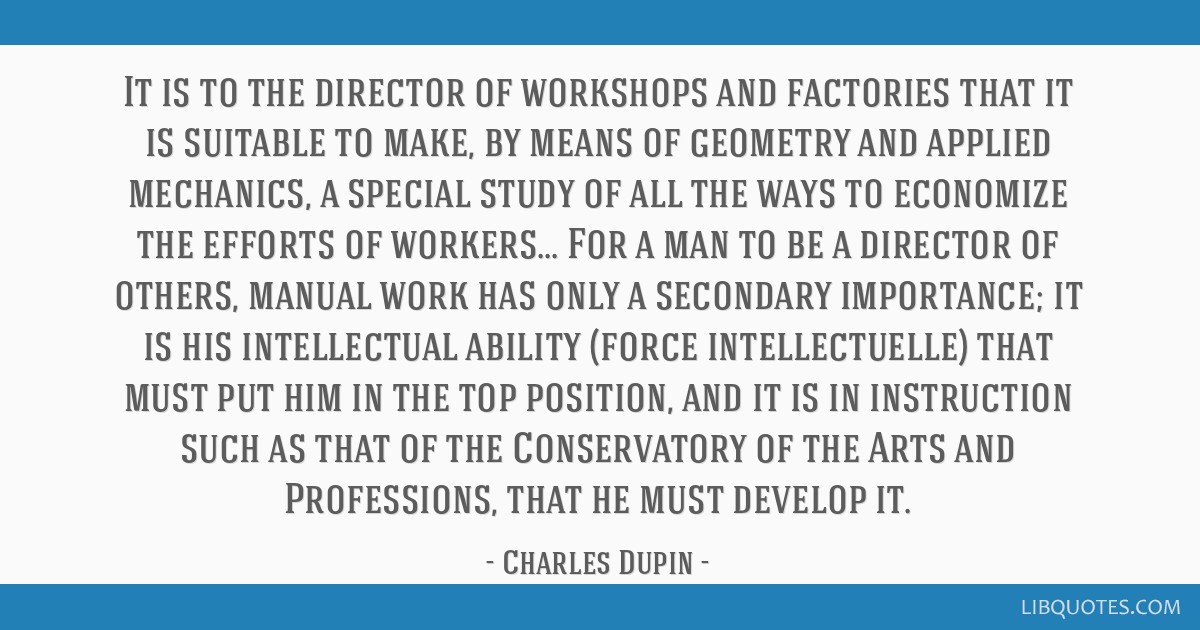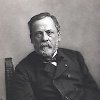It is to the director of workshops and factories that it is suitable to make, by means of geometry and applied mechanics, a special study of all the ways to economize the efforts of workers... For a man to be a director of others, manual work has only a secondary importance; it is his intellectual ability (force intellectuelle) that must put him in the top position, and it is in instruction such as that of the Conservatory of the Arts and Professions, that he must develop it.
Charles Dupin (1826), Geometrie et Mechanique des Arts et Metiers et des Beaux Arts Paris: Bachelier; Cited and translated by John Hoaglund, "Management Before Frederick Taylor," p. 30.; and cited in Wren & Bedeian (2005, 74)























